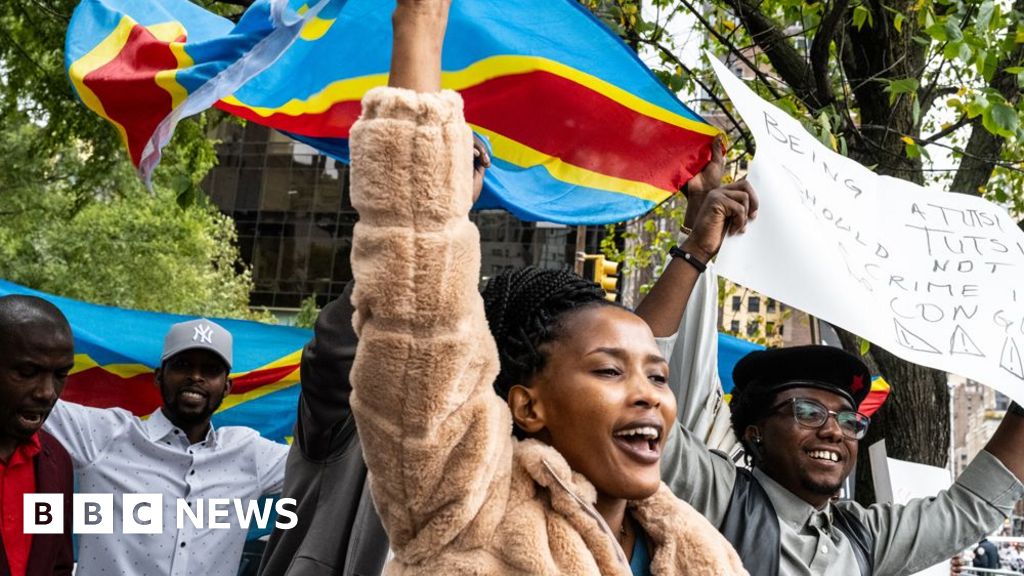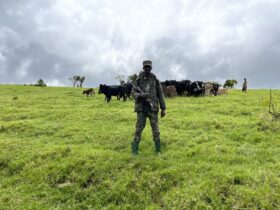Does the DRC have the “Locus Standi” (legal ground) to invoke its “Territorial Integrity” and “National Sovereignty”, and impose them on the M23 movement and on Rwanda?
In recent years, we have seen articles and speeches accusing Rwanda of violating Congolese “Territorial Integrity” and “National Sovereignty”. These internationally recognized concepts have definitions and exceptions. While all invoke them at will, no one has unpacked them to look into their substance and establish whether they apply in these instances.
National Sovereignty and Territorial Integrity are enshrined in the United Nations Charter, in its Articles 2(1), 2(4), and 2(7), which uphold the equality and sovereignty of all member states. It is more specifically defined in the Treaty of Westphalia of 1648, which established the norm of non-interference in the domestic affairs of sovereign states.
The legal implications include, inter alia, the capacity of a state to maintain legitimacy on the entirety of its territory by offering protection to its citizens, control its natural resources, and defend its borders against other states and non-state actors.
Throughout this article I will show how the Democratic Republic of Congo (DRC) has consistently and perhaps irremediably violated territorial integrity and national sovereignty both internally and externally.
First, internally:
By forming an alliance with the “Democratic Forces of the Liberation of Rwanda” (FDLR), a foreign, UN-sanctioned militia made of remnants of perpetrators of the genocide against the Tutsi in Rwanda, whose leaders, including Calixte Mbarushimana and Sylvestre Mudacumura, are frequently arrested while travelling abroad, and tried in international jurisdictions, the DRC violated its own National Sovereignty.
National Sovereignty means a State has exclusive legal authority over people, property, and events within its borders. By allowing FDLR to collect taxes, racketeer citizens, and conduct smuggling of minerals, charcoal, and produce from Eastern Congo for about 30 years, Kinshasa violated its internal National Sovereignty.
Sovereignty means a state has full control over its internal and external affairs, free from outside interference. This includes using force within its territory. From Mobutu then, to Tshisekedi now, the Kinshasa government has been hiring mercenaries to fight its wars against its own citizens since 1960. At one occasion, the Province of Katanga broke away and hired South African mercenaries to face off with other mercenaries hired by the Leopoldville (Modern-day Kinshasa) government and enforce the secession.
More alarming still, the Kinshasa government has neglected the security of the Hema people, who are assimilated to Tutsi, in the upper regions of Beni and Ituri, Eastern DRC. These innocent congolese continue to die at the hand of local militia CODECO allied to the Congolese government, and Ugandan islamists of ADF-Nalu. Beni and Ituri register the highest death tolls by far, in the entire DRC, yet Kinshasa hardly ever mentions them, because the victims are assimilated to Ugandan Tutsi.
In addition to FDLR, CODECO, ADF and mercenaries, Kinshasa further allied with hundreds of unruly local militias, named “Wazalendo” (Kiswahili for “real citizens”), to persecute, kill, and displace its own citizens – the Tutsi Congolese (Banya-Mulenge, Banya-Rutsuru, Banya-Masisi) from Eastern DRC.
These actions also violate DRC’s internal National Sovereignty and Territorial Integrity and have other implications in international law:
The act by a state or militias supported by the state to target its own civilian citizens, triggers the United Nations’ principles of “Responsibility to Protect (R2P)” and the “Kigali Principles on the Protection of Civilians”, which give the right to any responsible UN Member State to act in protection of the targeted civilians.
The two Principles were adopted after the previous Rwandan State targeted its Tutsi population and massacred one million of them between April and July 1994, while the world watched and did nothing. Paul Kagame and the Rwandan Patriotic Front (RPF) eventually defeated the genocidal government and stopped the Genocide. The defeated killers fled to Eastern DRC and are now allied with Kinshasa, this time to target Congolese Tutsi, killing and displacing them. You can imagine Paul Kagame and RPF’s mindset in light of this.
On External Territorial Integrity and National Sovereignty:
The act by the Kinshasa government to arm FDLR and allow them to use its territory as a rear base to conduct violent attacks on the Rwandan territory, the DRC violated Rwanda’s territorial integrity.
The act by the President of the Democratic Republic of Congo of publicly declaring his intentions to bomb Kigali and conduct a violent regime change in Rwanda, violates Rwanda’s national sovereignty.
For the last decade, and more so for the last three to four years, anti-Rwanda campaign has been the fuel that drives Kinshasa’s political agenda. The Congolese government has paid lobbyists, its leaders travelled the world to try and undermine Rwanda’s image and interests globally, in vain.
They wrote to football clubs with which Rwanda partners, boycotted institutions such as the Francophonie headed by a Rwandan, pressured the UN, canvassed for sanctions against Rwanda. While that had little to no effect on the Rwandan government, their anti-Tutsi rhetoric has led to persecution, lynching and killing of Tutsi Congolese within the DRC.
Upon release of sentenced genocide perpetrators, the DRC government offered them sanctuary in Congo. They funded a concert on negationism in France to be held on the 7th of April, the International day of commemoration of victims of the genocide against the Tutsi, which was canceled by the City of Paris. They invited known and sentenced genocide deniers to hold conferences on denial of the genocide against the Tutsi in Kinshasa Universities. These actions violate Rwanda’s National Sovereignty.
The assertion that the Democratic Republic of Congo has failed to uphold its territorial integrity and national sovereignty is further buttressed by the presence of ONUC, MONUC, and currently MONUSCO; all United Nations Peacekeeping troops on various parts of the Congolese territory, intermittently since 1960 and consistently since 1999 to date, as rightly pointed out by French President Emmanuel Macron on a visit to Kinshasa in March 2023:
“Sorry to put it in such blunt terms: You have not been capable of restoring your sovereignty: Be it military, administrative, or on the security front. Do not look for foreign culprits to scapegoat…”, the French President shut down a Congolese journalist who was accusing Rwanda.
So the world knows the truth, that rhetoric and realpolitik aside, the Democratic Republic of Congo (DRC) has voluntarily violated and surrendered its own and neighbors’ territorial integrity and national sovereignty.
On several occasions, FDLR militias penetrated Rwanda’s territory, killing civilians and destroying property. At other occasions, the DRC army sent bombs across the border to Rubavu and Kinigi, two of Rwanda’s districts near the Congolese border, also causing human casualties. That is simply unacceptable! With the exception of the DRC, no other country in the world can tolerate that.
In an interview to BBC following attacks by ADF islamists on Ugandan soil, killing innocent civilians, Ugandan army’s spokesperson declared that his country would withdraw from military cooperation with Kinshasa if the latter continued to arm and collaborate with the violent militia that targets Uganda’s citizens. This was clearly a violation of Uganda’s territorial integrity and national sovereignty.
A State cannot form an alliance with an internationally sanctioned terrorist organisation sworn at conducting violence on a neighbor’s territory, then invoke “Territorial Integrity” and “National Sovereignty” when said neighbor takes measures to defend themselves, not least, a State cannot fund hundreds of violent militias to target one of its communities on ethnic grounds, then claim “National Sovereignty”.
In the words of President Paul Kagame, “Rwanda’s security is non-negotiable”. If the DRC is willing to adopt militias of all confessions that wreak havoc on its own territory in the name of tribalism and bad governance, that is their “sovereign” business. However, the Rwandan government has a “Responsibility to Protect”, if not the Congolese Tutsi, but imperatively its own citizens.
The right of Congolese Tutsi to security, dignity and self-determination.
“Nemo auditur propriam turpitudinem allegans” is a Latin principle of law, that translates to “no one can be heard to invoke his own turpitude”
In speeches, the Kinshasa regime has declared congolese Tutsi as citizens at times, and alien at other times. In practice however, Kinshasa has systematically oppressed, killed and displaced them. The term “Wazalendo” (real citizens) – a coalition of all hundreds of violent militias allied to the Congolese government, was coined in opposition to “the non-citizens”: Tutsi congolese.
This is not new, the genocidal government in Rwanda formed the “Interahamwe” that perpetrated the genocide, while in Burundi they have the “Imbonerakure” that conducted exactions on Tutsi civilians, forcing almost half a million of them to flee into exile.
This political behaviour from Kinshasa offers the congolese Tutsi full rights to seek measures and alliances to protect and defend themselves by any means necessary; and that, in virtue of the Congolese Constitutional and International Law.
In one of his last speeches, the late Tanzanian President Mwalimu Julius Nyerere, co-founder with Haile Selassie and Kwame Nkrumah of the Organisation of African Unity (OAU), regretted:
“When we were forming the OAU, we stipulated the intangibility of borders inherited from colonialism. We never envisioned that States would turn against their own citizens. We should have insisted on the inviolability of people within those borders. If a State wants to expel a community of people it deems unwanted to another country, it should return the piece of land where they people live too…”
Here is the Mwalimu’s full speech: https://www.youtube.com/watch?v=4q-CLjTLy58
















My comrade
Kabisa uragahorana Imana n’iki harya bavuga?? Wabizanye byose kurushyi rw’ikiganza. Courage kandi
But my learned friend, with all these evidence and facts, how is it possible that Rwanda has failed to convince the international community of the problem it faces with DRC, is it lack of eloquent spokesmen or Rwandans are too cowards to stand up for their rights. This is really disturbing with all these evidence and facts and the law at Rwanda’s disposal.